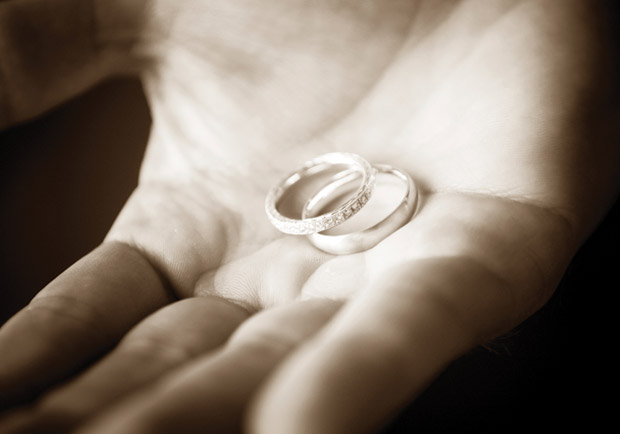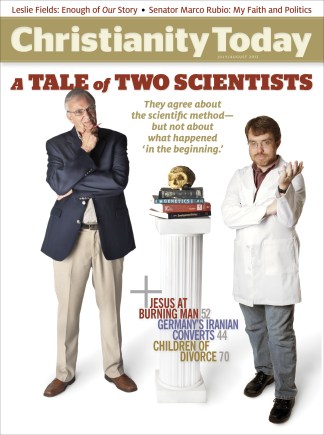The gay marriage debate continues to boil over, tempting our nation to inaugurate a new era of McCarthyism. Back in the 1950s, anyone suspected of communism became a pariah. Now that seems to be true of anyone who supports traditional marriage.
Chick-fil-A president Dan Cathy, in answer to an interview question about the principles of the popular fast-food company, said, “We are very much supportive of the family—the biblical definition of the family unit.” This set some people’s teeth on edge. But the heat rose when some discovered Cathy said a couple of weeks earlier, “I think we are inviting God’s judgment on our nation when we shake our fist at him and say ‘We know better than you as to what constitutes marriage.’ ”
That may be prophetic, but in our culture it is impolitic to say this. Cathy’s comments raised the ire of Chicago alderman Joe Moreno, who said he would block the company from building a restaurant in his ward. He was supported by Chicago mayor Rahm Emanuel, and, from a distance, Boston mayor Thomas Menino, who wants Chick-fil-A to vacate the premises of his town ASAP. As Menino put it, he’s “angry” about such “prejudiced statements.”
And this, even though Chick-fil-A followed up with a statement saying it strives to "treat every person with honor, dignity and respect—regardless of their belief, race, creed, sexual orientation or gender.” And then there’s this not unimportant fact: There is absolutely no proof that Chick-fil-A has ever practiced prejudice of any sort.
So apparently how you actually treat homosexuals is not a sufficient test of one’s Americanism. Now you need to think right to get into the good graces of government. This has struck even some pro-gay marriage advocates as a bit over the top–some would say Stalinist. As theChicago Tribune’s Eric Zorn put it, “Don’t ask The Man to do the dirty work of attempting to marginalize and silence your opponents.”
Back in the spring, there was a similar dustup over the issue. On May 8, North Carolina citizens voted to ban gay marriage by a hefty margin of 61 to 39 percent. The next day, President Obama said on national television, "I think same-sex couples should be able to get married."
The comments following both events were predictable. From gay marriage advocates, there was talk about civil rights and history being on their side. Proponents of traditional marriage, meanwhile, resonated with this statement from Cardinal Timothy Dolan, president of the U.S. Conference of Catholic Bishops: "We cannot be silent in the face of words or actions that would undermine the institution of marriage, the very cornerstone of our society."
To sum up what we at Christianity Today have said before: We believe gays and lesbians should not be denied fundamental rights granted to every other American, nor should they suffer slurs or intimidation in any shape or form (and neither should those who oppose gay marriage). Further, we continue to believe that marriage should be defined in our nation as a moral and legal bond between a man and a woman. For, among other reasons, societies that fail to shape themselves by the most basic and universal of divine laws and institutions cannot have a happy future (Cathy is right to be concerned). This seems built into the very order of creation by our loving Creator.
Careful readers will notice that we do not get panicked or outraged when gay marriage sometimes gets the upper hand in the ebb and flow of national debate. As much as we want the state to recognize and protect traditional marriage, we're not depending on the state to do so. In fact, the state has already done plenty to undermine traditional marriage—no-fault divorce law being perhaps the most egregious example. Since its advent in 1970, this policy has destabilized marriage like no other.
Nor do we think that the future of marriage or the American experiment hinges on how we as a nation decide the gay marriage debate. The on-the-ground understanding of marriage was weakened long ago. While the formal conversation around marriage is often about making a commitment to love and serve another for life, in practice it is clear that the cult of self-fulfillment drives many if not most of today's marriages.
Far more than the protection of the legal definition of marriage, our society needs a fresh understanding of marriage.
It is impossible to find accurate numerical data that report the reasons for divorce, due to states having different requirements, terminology, and reporting methods for divorcing couples. But reasons commonly cited on legal and counseling websites include infidelity, communication breakdown, sexual incompatibility, boredom, and differences in priorities and expectations. The clichéd response, "We grew apart," is not a bad summary of all these reasons. It strongly suggests, "I'm not interested in pursuing this relationship if you're not interested in what I'm interested in."
Far more than the protection of the legal definition of marriage, what our society needs is a fresh understanding of marriage. One does not have to be a Christian to see how much richer and deeper marriage can be if it is primarily entered into for the sake of others, certainly the spouse but especially for the offspring of a marriage.
Nor does one have to be a theist to recognize that there is something fitting, unique, and precious about the sexual union of a husband and wife. For the Christian, of course, marriage is more than all this (a sacramental witness to God's covenant with his people, for example). But we can happily join hands with people of other faiths or no faith who recognize the tangible, natural dimensions of marriage that seem to be built into the very order of things.
While we continue to strive to convince our nation of the value of traditional marriage, we must not get discouraged on the legislative front, and should take in stride the prejudice against those who publicly support traditional marriage. While proponents of gay marriage will make it sound like history is on their side, in fact, history keeps surprising us. Not long ago, many thought that communism was the inevitable future, others, that religion was on its last legs. No, our nation's formal definition of marriage still hangs in the balance.
But rather than put all of our eggs in the basket of constitutional amendments or judicial opinion, we Christians would be wise to shore up marriage in our churches. Doing this would be both an act of repentance for our narcissism (for we Christians succumb to this temptation as much as the next sinner) and a witness to what marriage at its best can be. That calls for continued efforts by church and parachurch ministries to strengthen marriages, and to offer winsome public arguments for a deeper and richer understanding of marriage than our culture can possibly imagine.










